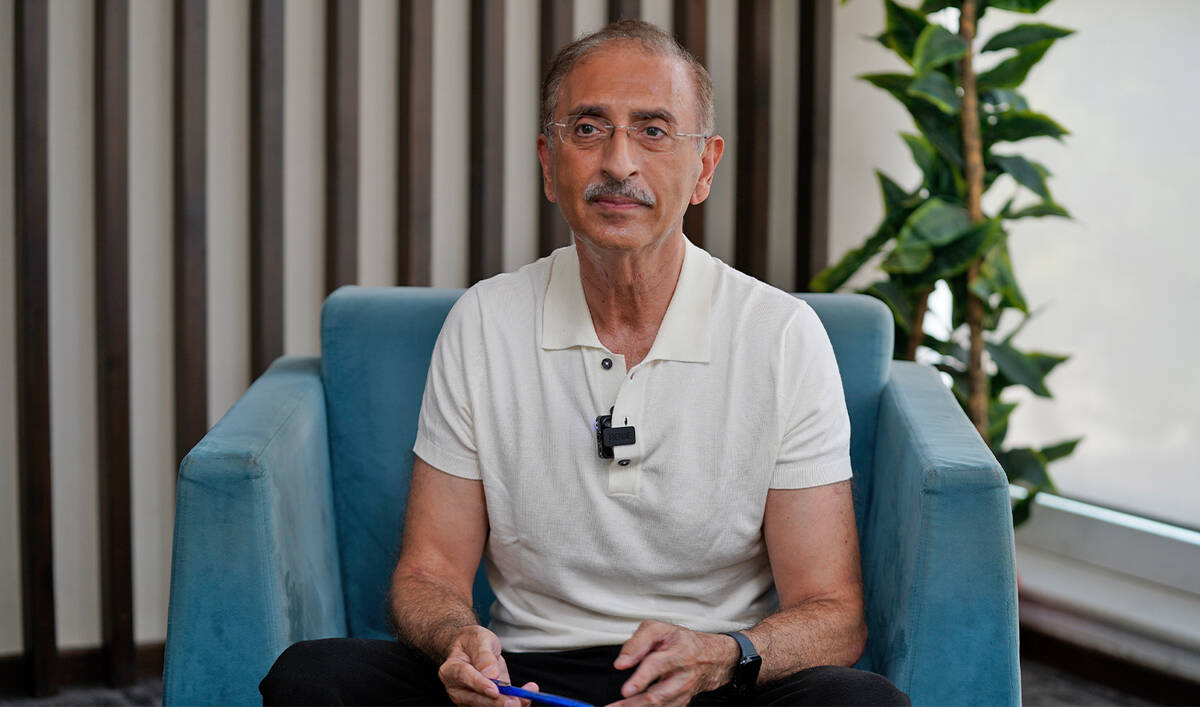ISLAMABAD: A four-day military standoff between arch foes Pakistan and India last week cost both nations an estimated $1 billion an hour combined, a leading economist said this week, as a finance adviser to the government argued the conflict would have “minimal fiscal impact” for Islamabad.
Tensions between nuclear-armed neighbors India and Pakistan escalated after a deadly April 22 attack on tourists in Indian-administered Kashmir that India blamed on Pakistan, which denied involvement. On the night of May 6/7, India struck multiple sites in Pakistan that it said was “terrorist infrastructure” and Pakistan retaliated, downing five Indian fighter jets.
Over the next four days, the two nuclear-armed rivals engaged in the worst fighting between them since 1999, pounding each other with fighter aircraft, missiles, drones and artillery fire, until a ceasefire was brokered by the US and other nations on Saturday.
The military confrontation had in the meantime disrupted stock markets, led to airspace closures, escalated defense spending and caused economic losses amounting to billions of dollars.
Asked about the economic cost of the conflict, Farrukh Saleem, a prominent Pakistani political scientist and economist, said he estimated the 87-hour confrontation cost “about a billion dollars an hour for both countries put together,” breaking it down into estimated costs borne by either of the neighbors.
“India has a much larger army, much larger air force. Once it starts moving, once it starts mobilizing its troops, it costs about, let’s say, 12 to 20 times more for the Indian army to mobilize itself as compared to the Pakistani army,” Saleem said.
“So, when I say a billion dollars an hour, you’re probably looking at 20 percent of that being incurred by Pakistan and a good 80-85 percent by India.”

Farrukh Saleem, a Pakistani political scientist and economist, talks to Arab News in Islamabad, Pakistan, on May 13, 2025. (AN photo)
The investment in war was also different, Saleem said, comparing India’s French Rafale fighter jets to Pakistan’s Chinese J-17 Thunders and J-10cs.
“You look at Rafale, for instance, which is the French aircraft, with its paraphernalia, it’s about $240 million apiece. India has a $16 billion investment into Rafales,” Saleem explained.
“On the other hand, Pakistan Air Force has gone for cheaper platforms. They are either JF-17 Thunders or J-10Cs and they’re like $20-25 million.”
In terms of missiles, the Indian ballistic missile BrahMos is $3 million apiece.
“If you’re firing, let’s say, 8 to 10 [missiles] a day, that’s 10 times $3 million, that’s $30 million in one day,” the economist said.
Arab News reached out to the defense ministry and Pakistan’s military media wing for official estimates of the latest conflict’s cost but did not receive a response.
But Khurram Schehzad, an adviser to the Pakistani finance minister, said the fiscal impact on Pakistan would not be large.
“The current standoff with India won’t have a large fiscal impact on Pakistan,” he told Arab News. “It can be managed within the current fiscal space, with no need for a new economic assessment.”
Schehzad said Pakistan’s economic resilience was evident from a new record at the Pakistan Stock Exchange, which on Monday posted the highest single-day gain in over 26 years, surging by 10,123 points or 9.45 percent, significantly surpassing the losses recorded last week following the Indian strikes.
“Pakistan’s measured and responsible response, in both its narrative and actions on the ground, has caught investors’ eye, alongside the potential positive spillover effect of a possible settlement in the US-China tariff issue,” he added.
But economists say the recent military standoff has already inflicted heavy financial losses on both countries.
Saleem said daily economic losses from the conflict, including stock market declines and other impacts, amounted to around $20 billion per day, with Pakistan losing up to $4 billion and India as much as $16 billion a day.
“I have tried to put things together. If this conflict had continued for 30 days, my estimate is that both countries would have lost a good $500 billion, with over a $400 billion loss for the Indian economy,” he said.
Dr. Ali Salman, Executive Director of the Policy Research Institute of Market Economy (PRIME), an Islamabad-based independent economic policy think tank, said the conflict had disrupted economic sentiment and affected investor confidence.
“Certainly, investors would not like to come into countries, whether India or Pakistan, if they are in a constant war-like situation,” he told Arab News.
He also warned that a prolonged conflict would push people in both countries deeper into poverty, noting that one in four poor people in the world lived in India or Pakistan.
“We have 27 percent of the world’s poor in just these two countries, and I believe that we need to come out of the military contest and go into an economic contest,” he added.
Another economist, Shakeel Ramay, said every war had an economic dimension and this conflict too had imposed a heavy financial burden on both economies.
“Pakistan’s military expenditure over the four-day conflict, including jets, artillery and missiles, amounted to around $1.5 billion from the national budget, by my estimate,” he said, a significant cost as the country walked a tricky path to economic recovery bolstered by an $7 billion IMF bailout.
“The good thing is our economic activities continued without interruption, retail markets operated smoothly with no shortages and trade routes remained open, all indicating that the direct economic cost was minimal,” Ramay added.

















